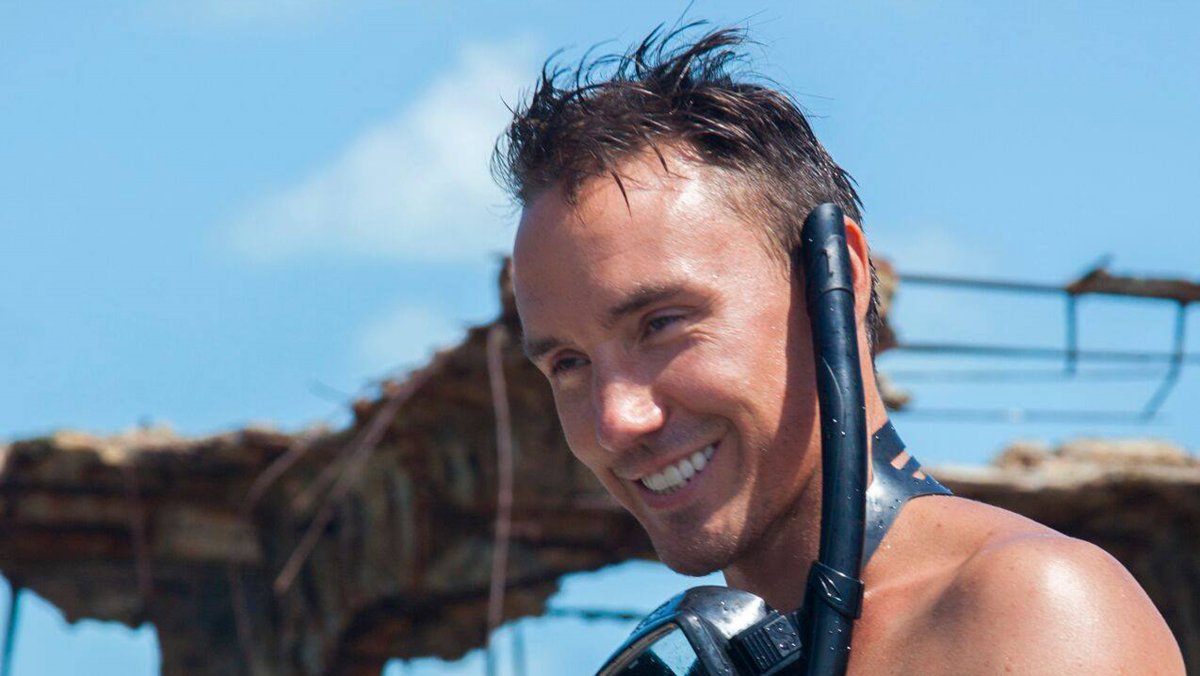Growing up in a land-locked area, I had little exposure to the ocean and the creatures that call it home. So it was a bit unusual that I developed a deep-seated love for the predator of the seas - sharks. The moment I looked past their media-driven reputation as ruthless killers, I discovered their worth. Having evolved around 450 million years ago and surviving the last five mass extinctions, it’s no wonder these animals are highly intelligent super-predators, shaping all oceanic life and ecosystems since their arrival.
In 2016 I watched a documentary on YouTube called Sharkwater. It was an exposé on the shark fin industry, produced by Rob Stewart of Toronto, Canada. I already knew that sharks weren’t well respected, however the scope of the problem was far beyond anything I had previously understood. In the name of fear and greed, people treat sharks in ways that would ignite public outcry if the same actions were taken upon any land-dwelling animal. Over 100 million sharks were being killed each year for the multi-billion-dollar industry of shark fin soup (a Chinese delicacy), resulting in a 90+% decline in shark populations. The impact of this on ocean ecosystems is nauseating. I redoubled my efforts to be a champion and spokesperson for sharks.
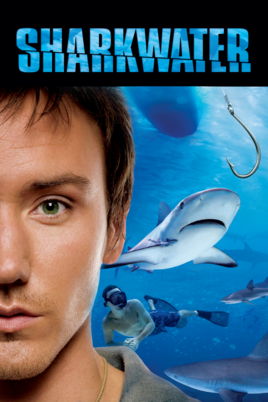
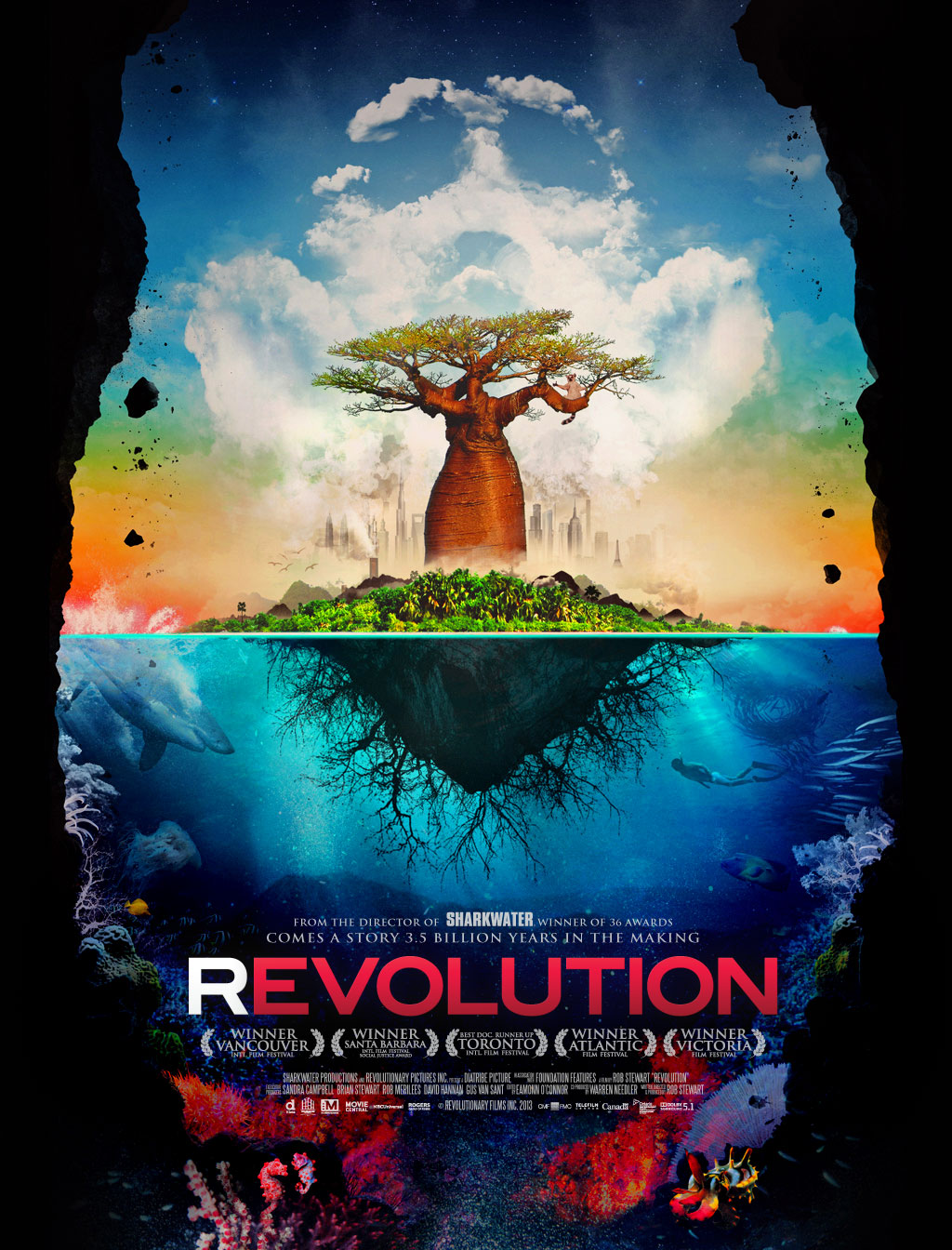
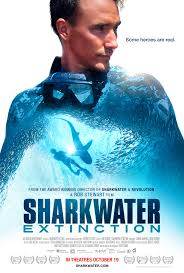
Rob Stewart via Sharkwater
Fast forward to September of this year, Sharkwater Extinction, the followup movie to Sharkwater, was slated to make its worldwide premiere at the Toronto International Film Festival. Sharks had become so deeply ingrained into my life - I had to see this film ASAP. So I traveled to Toronto and what I learned this time shook me to my core. Despite ten years of progress since the initial release of Sharkwater resulting in a near worldwide ban on shark finning, the number of sharks murdered each year is currently estimated to be upwards of 150 million. If our society has begun moving away from the shark fin industry, why has the slaughter continued? Policy loopholes, black markets, mafias, corrupt companies, more fear and more greed. The ban on shark finning says you are not allowed to land a shark, cut off the fins, and throw the body back leaving the shark to drown. To avoid breaking the law, fisherman now land sharks and bring the entire body back to port. But what is happening to the 80 million shark bodies not attributed to shark fin soup, and why has nobody taken notice? Spoiler alert: They’re being used in pet food, fertilizers, livestock feed, and cosmetics. Renamed and fed to us in fast food, and sold under names such as ‘flake’, ‘rock salmon’, and ‘whitefish’. Don’t you think companies ought to tell you if you’ve been smearing a 450 million year old super-predator on your face?
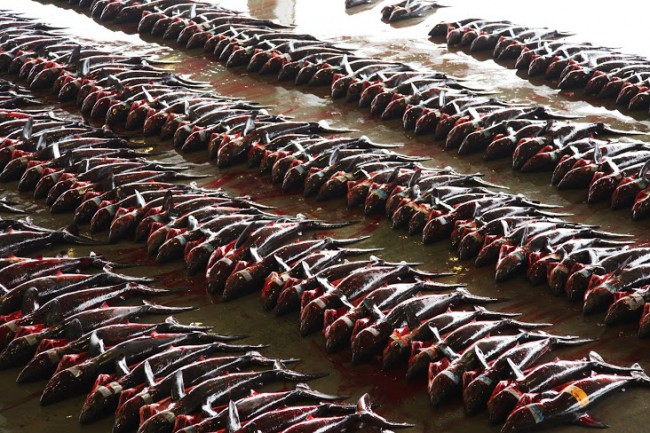
Rob Stewart via The Tribute
I got back to Philadelphia and I didn’t know what to do. I spoke with friends (whom I regard as morally good people) about this revelation and the general response was “Wow, that’s crazy.” and that’s where the conversation ended. Borderline lost, I turned to Rob for guidance. I watched Revolution, his documentary that was released in-between the two Sharkwater films. In the film Rob underscores that the problem stretches far beyond sharks. What’s the point of saving sharks, the animals that outlived dinosaurs, if the world’s fisheries and forests are projected to be depleted by 2048? If coral reefs, sustaining 25% of ocean life, are estimated to be dead no later than 2070? It’s wasn’t just about sharks anymore - it’s about saving everything, ourselves included.
Conservation is a tough sell. We tend to live our lives far removed from the destruction we create. Flushing our waste away and tossing out trash, never to be seen again. All day there are societal issues and public matters vying for our attention and money; it’s a constant information war. Nobody wants to hear the negative evidence about how we are trashing our planet, because then our morals kick in and we feel the need to behave differently - and that’s inconvenient. The last thing any student, working parent, or retired senior wants to do is add ‘save the planet’ to their to-do list. Yet we’ve reached a cornerstone where conservation now means preservation of human life on earth, not just the preservation of nature. What information could be more important than that? There is nothing if we don’t have planet earth - Mars won’t be ready within the next 50 years. Nature can live without us, but we can’t live without nature.
I’m not trying to sell myself as an environmental expert but here’s what I’ve learned. Ocean acidification, caused by enormous amounts of carbon dioxide emissions, is perhaps one of the most pressing threats. Oceans (which take up 90+% of all habitable space on earth and house up to 80% of all species) absorb massive amounts of our emissions and pollutants. Due to increases in carbonic acid, anything that builds a skeleton (phytoplankton, fish, coral reefs, etc.) is subject to dissolution, eliminating keystone species and ecosystems, and greatly disrupting food chains. Oceans, starting with plankton, produce 50-80% of all oxygen on earth. Ocean acidity has increased by 30% since the Industrial Revolution. A small percentage of change in acidity in your body will kill you. This is a paradigm of exponential growth feeding off finite resources.
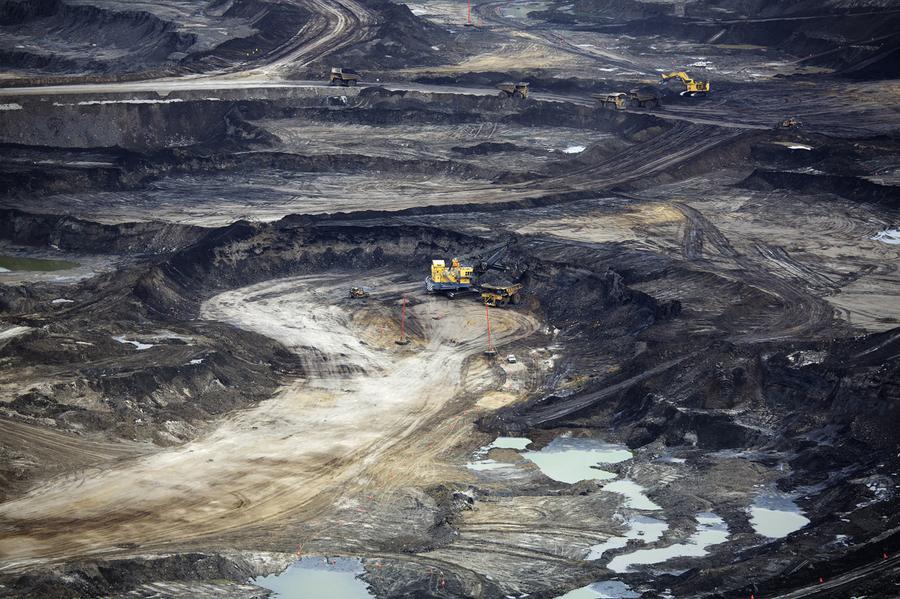
The Alberta Tar Sands: Image by Todd Korol (Reuters) via The Atlantic
If you’re still here, there’s a chance I’ve struck a moral or spiritual chord inside of you. While the problem has never been more severe, there’s also never been a generation or a movement that cares more to save everything. We’ve let our systems and corporations run rampant, along with our own consumption-centered mindsets. Remember that no matter how far removed our lives may be from the oceans, our decisions still affect them in profound ways. Be a conscious consumer by consuming less and in smarter ways. There’s enough plastic waste on earth that we never have to produce any more if we made use of what is already here. Every time you spend a dollar you’re voting for the kind of future you want based on who you’re giving that money to. Be mindful of what you eat by asking questions about whether it was sourced sustainably and by educating yourself. Pressure government and business leaders to implement and enforce policy that supports conservation. (U.S. general elections are in November, make sure you vote smartly!) Have conversations with your peers; when you know and understand what’s happening you feel morally compelled to act. Let’s bring nature back to the planet.
I agree with Rob - we can’t fight against our problems anymore. We should be fighting for a world that is beautiful for all humans and all species. Rob Stewart is my hero because he changed my perception on life and continuously instills the purpose needed to spur change and inspire others. My message has two layers.
1: Consider your impact; make less destructive decisions on a daily basis.
2: Find what you love most about Earth, and use your skills to make a more beautiful world.
For Rob and I, that started with sharks.
January 31st, 2017. Rob Stewart went missing off the coast of Florida on a scuba diving expedition for Sharkwater Extinction, and three days later his body was recovered. It was an enormous loss for everyone, and every living thing. The Sharkwater team fulfilled Rob’s vision for the film and saw it all the way through to its world premiere at TIFF, where I sat and watched with a mix of emotions. Rob Stewart is forever my hero for changing not just my world, but everyone’s through his work. Now, the part of his legacy that resides within me means that it’s my responsibility to try to be a hero too.
Sharkwater Extinction is currently playing in theaters across Canada, but will make its way into US theaters, dates TBD - plan to go see it, it will change your perception. You can download Revolution here for $3 through Vimeo. The original Sharkwater is harder to find, but Amazon still sells the DVD version here. Watch W5’s new special on Rob here.
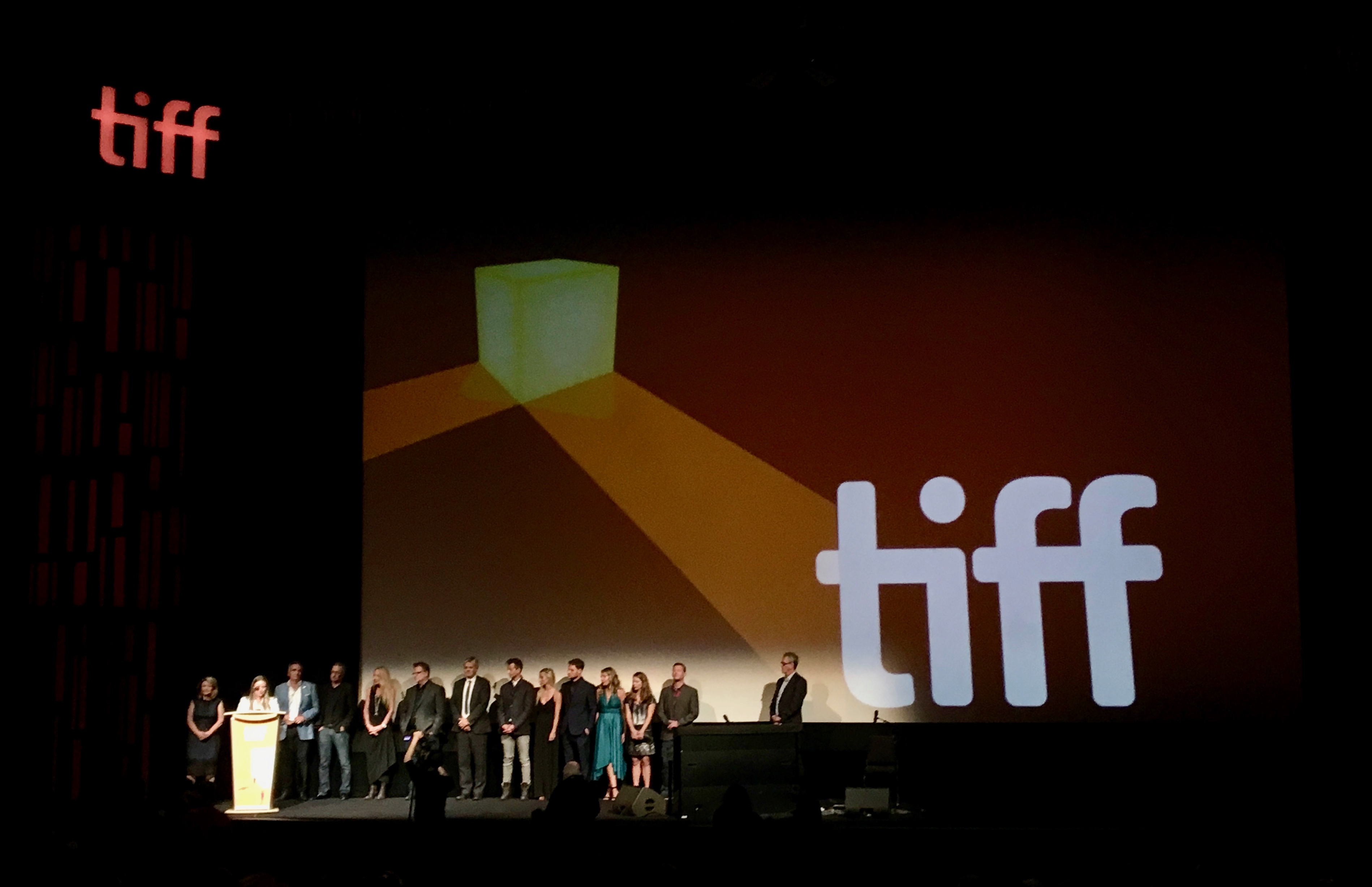

*Header image by Rob Stewart via Sharkwater
